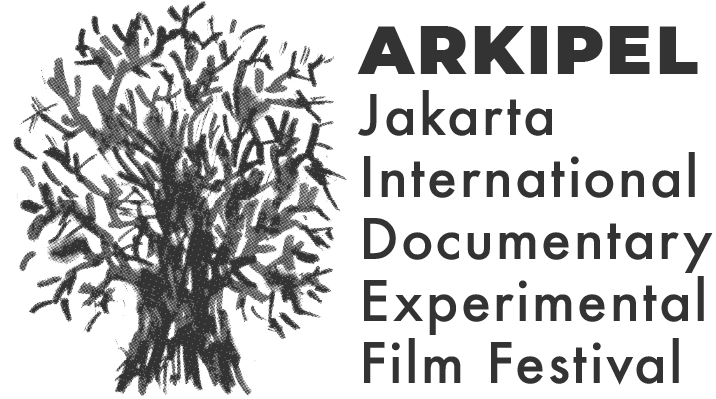Bromocorah Within Film Aesthetics
Bromocorah dalam Estetika Filem
Moderator: Dhuha Ramadhani
Panelists: Garin Nugroho, Edwin, Manshur Zikri
Monday, August 19, 2019 | 12:30 | GoetheHaus
Abstrak / Abstract
Sebagaimana diskursus seni bekerja, diskursus bromocorah selalu bergerak dinamis dan senantiasa progresif jika kita membingkainya sebagai sebuah fenomena sastraik ketimbang testimoni sejarah. Pembingkaian atas bromocorah dapat pula berarti mengkonstruksi konsep progresivitas. Energi bromocorah akan membawa kita terus keluar dari keteraturan sistem yang telah ada dan terlanjur diterima publik serta senantiasa dimapankan oleh sistem itu sendiri. Dengan bersepakat atas itu, maka dapat pula kita bersepakat bahwa “bromocorah itu seni”, atau lebih tepatnya “seni itu bromocorah”. Progresivitas yang terkandung dalam konsep bromocorah kemudian membukakan peluang bagi kita untuk menyelaminya lebih dalam di ranah sinema. Dalam genealoginya, secara teknologis maupun estetis, sinema lahir bersama progresivitasnya. Pada masa awalnya, ketimbang isu-isu kanonik atau gambar-gambar tentang keagungan, isu yang diangkat sinema pasti bersifat pinggiran: kriminalitas, perburuhan, humor slapstick, juga peristiwa massa yang dibingkai sebagai peristiwa sehari-hari di sekitar kita. Maka, secara genetik, sinema itu bromocorah. Sebagai konsep, bromocorah menjadi semacam virus yang menyusup ke dalam sistem – di dalam juga di luar tubuhnya – dan menggerogotinya. Dengan melihat bromocorah sebagai “kemungkinan”, melalui kultur sinema, para panelis diharapkan dapat memaparkan refleksi kritisnya dalam upaya membaca gejala-gejala ekonomi, sosial, politik, dan kultural terkini.
Like how the discourse of art works, the discourse of bromocorah always moves dynamically and progressively if we put it as a literary phenomenon rather than a historical testimony. The act of framing bromocorah might also means constructing the concept of progressivity. Bromocorah energy will bring us out of the fixated system that already exists, previously accepted by the public, and established by the system itself. Based on that, we can also agree that “bromocorah is art,” or rather “art is bromocorah.” The progressivity contained in the concept of bromocorah then lays us opportunities to dive deeper into the realm of cinema. In its genealogy, technologically and aesthetically, cinema was born with its progressivity. In the early days, rather than canonical issues or images of greatness, the issues raised by cinema characterized as marginal: crime, labor, slapstick humor, as well as mass events that are framed as everyday events. So, genetically, the cinema is bromocorah. Analogically, bromocorah acts as some kind of virus that penetrates the system – inside and outside the body – and gnaws at it. By seeing bromocorah as a “possibility,” through the cinema culture, the panelists are expected to present their critical reflection in an attempt to read the latest economic, social, political and cultural phenomena.
About the Panelist

Garin Nugroho lahir di Jogjakarta dan menyelesaikan studi filmnya di Institut Kesenian Jakarta tahun 1985. Lalu melanjutkan studinya di Fakultas Hukum UI dan lulus di tahun 1991. Memulai karir sebagai sutradara lewat produksi film dokumenter, kemudian mulai mencari film cerita yang panjang, Cinta dalam Sepotong Roti (1990) yang langsung mendapat penghargaan Film Terbaik di Festival Film Indonesia 1991. Film lengkap, Surat untuk Bidadari (1992), bertemu ke sirkuit festival film internasional. Sejak itu, namanya melejit dan merambah ke berbagai festival film internasional. Pada Perayaan 250 tahun Mozart (2006), ia terpilih menjadi salah satu dari enam ‘sutradara inovatif’ dunia untuk membuat film, yang kemudian menerima Opera Jawa.
Garin Nugroho was born in Jogjakarta and completed his film studies at the Jakarta Art Institute in 1985. Then continued his studies at the Faculty of Law UI and graduated in 1991. Started his career as a director through the production of documentary films, then began to make a feature film, Cinta dalam Sepotong Roti (1990) who immediately won the Best Film award at the 1991 Indonesian Film Festival. The complete film, Surat untuk Bidadari (1992), met to the international film festival circuit. Since then, his name has skyrocketed and spread to various international film festivals. At the 250th anniversary of Mozart (2006), he was chosen as one of the six ‘innovative directors’ of the world to make films, which later received Opera Java.

Edwin (Surabaya, 1978) adalah seorang penulis , sutradara dan produser filem cerita, filem pendek dan dokumenter. Namanya melambung di berbagai festival filem nasional dan internasional. Beberapa karya Filem pendek Edwin yang telah mendapatkan penghargaan ialah Kara, Anak Sebatang Pohon (2005) masuk dalam Program Directors’ Fortnight Cannes Filem Festival dan juga diputar di Festival Film Rotterdam. Dajang Soembi, Perempoan jang Dikawini Andjing (2004) masuk ke dalam Unggulan TV5 Tiger Club Award, mendapatkan Piala Citra Festival Film Indonesia dan menjadi Pemenang kedua Jiffest Short Film Competition (Jakarta International Film Festival). Filem ini juga lolos seleksi dalam beberapa penayangan international seperti Singapore international Film Festival, Singapura. International Short Film Festival Hamburg, Jerman. Vancouver International Film Festival, Kanada. Taipei Golden Horse Festival, Taiwan. Pada tahun 2008 Edwin menyelesaikan filem panjang pertamanya Babi Buta Yang Ingin Terbang dan menerima penghargaan FIPRESCI Intertional Critics’ Prize 2009, memenangkan NETPAC Award pada Golden Horse Film Festival, dan tayang di Buenos Aires Festival Internacional de Cine Independiente serta Busan International Film Festival. Film panjang keduanya Postcard from the Zoo (2012), berhasil masuk kompetisi utama Berlin International Film Festival (Berlinale)—satu dari tiga festival film terbesar dan tertua di dunia. Ia memenangkan penghargaan Piala Citra Untuk Sutradara Terbaik lewat Film Posesif (2017) dan namanya pernah masuk kedalam buku The Future of Film: 100 New Directors (Phaidon, 2010).
Edwin (Surabaya, 1978) is a writer, director and producer of story films, short films and documentaries. His name soared in various national and international film festivals. Some of Edwin’s short films that have been awarded are Kara, Anak Sebatang Pohon (2005) in the Directors’ Program of the Fortnight Cannes Film Festival and also played at the Rotterdam Film Festival. Dajang Soembi, Perempoan Dikawini Andjing (2004) entered the TV5 Tiger Club Award, he got a Citra Award from Indonesia Film Festival and became the second winner of the Jiffest Short Film Competition (Jakarta International Film Festival). This film also passed the selection in several international screenings such as the Singapore International Film Festival, Singapore. International Short Film Festival Hamburg, Germany. Vancouver International Film Festival, Canada. Taipei Golden Horse Festival, Taiwan. In 2008 Edwin completed his feature film “Babi Buta Yang Ingin Terbang” and received the FIPRESCI Intertional Critics Prize 2009 award, won the NETPAC Award at the Golden Horse Film Festival, and aired at the Buenos Aires Internacional de Cine Independiente Festival and the Busan International Film Festival. His second feature film Postcard from the Zoo (2012) made it into the main competition Berlin International Film Festival (Berlinale) — one of the three largest and oldest film festivals in the world. He won the Citra Award for Best Director from Posesif (2017) and his name was included in the book The Future of Film: 100 New Directors (Phaidon, 2010).

Manshur Zikri (Pekanbaru, 1991) adalah seorang penulis-peneliti independen, kritikus, dan aktivisi kultural di bidang media, seni, dan filem. Anggota Forum Lenteng, sebuah organisasi egalitarian dan non-profit yang berbasis di Jakarta, berfokus pada kerja-kerja aktivisme kultural.
Manshur Zikri (Pekanbaru, 1991) is an independent writer-researcher, critic and cultural activist in the field of media, arts and film. A member of Forum Lenteng, an egalitarian and non-profit organization based in Jakarta which focuses on cultural activism.
About the Moderator

Dhuha Ramadhani (lahir 23 Februari 1995, di Jakarta) adalah pembuat film dan kurator. Menyelesaikan pendidikan sarjana di Departemen Kriminologi, Fakultas Ilmu Sosial dan Ilmu Politik, Universitas Indonesia. Anggota Forum Lenteng, aktif sebagai salah satu peserta program AKUMASSA. Sekarang, dia juga seorang peserta dalam Milisifilem Collective. Sejak 2018, ia adalah kurator program Candrawala di ARKIPEL – Jakarta International Documentary and Experimental Film Festival. Pada Juli 2019 ia mempresentasikan kuratorialnya di Asia Forum 3 untuk EXiS – Experimental Film and Video Festival 2019, Seoul, Korea Selatan. Film-film terbarunya adalah Jakarta Unfair (2016) dan Into The Dark (2018).
Dhuha Ramadhani (b. February 23, 1995, in Jakarta) is a filmmaker and curator. Completed undergraduate education at the Department of Criminology, Faculty of Social and Political Sciences, University of Indonesia. Member of the Forum Lenteng, active as one of the AKUMASSA program participants. Now, he is also a participant in the Milisifilem Collective. Since 2018, he is the curator of Candrawala program at ARKIPEL – Jakarta International Documentary and Experimental Film Festival. On July 2019 he presented his curatorial on Asia Forum 3 for EXiS – Experimental Film and Video Festival 2019, Seoul, South Korea. His latest films are Jakarta Unfair (2016) and Into The Dark (2018).

